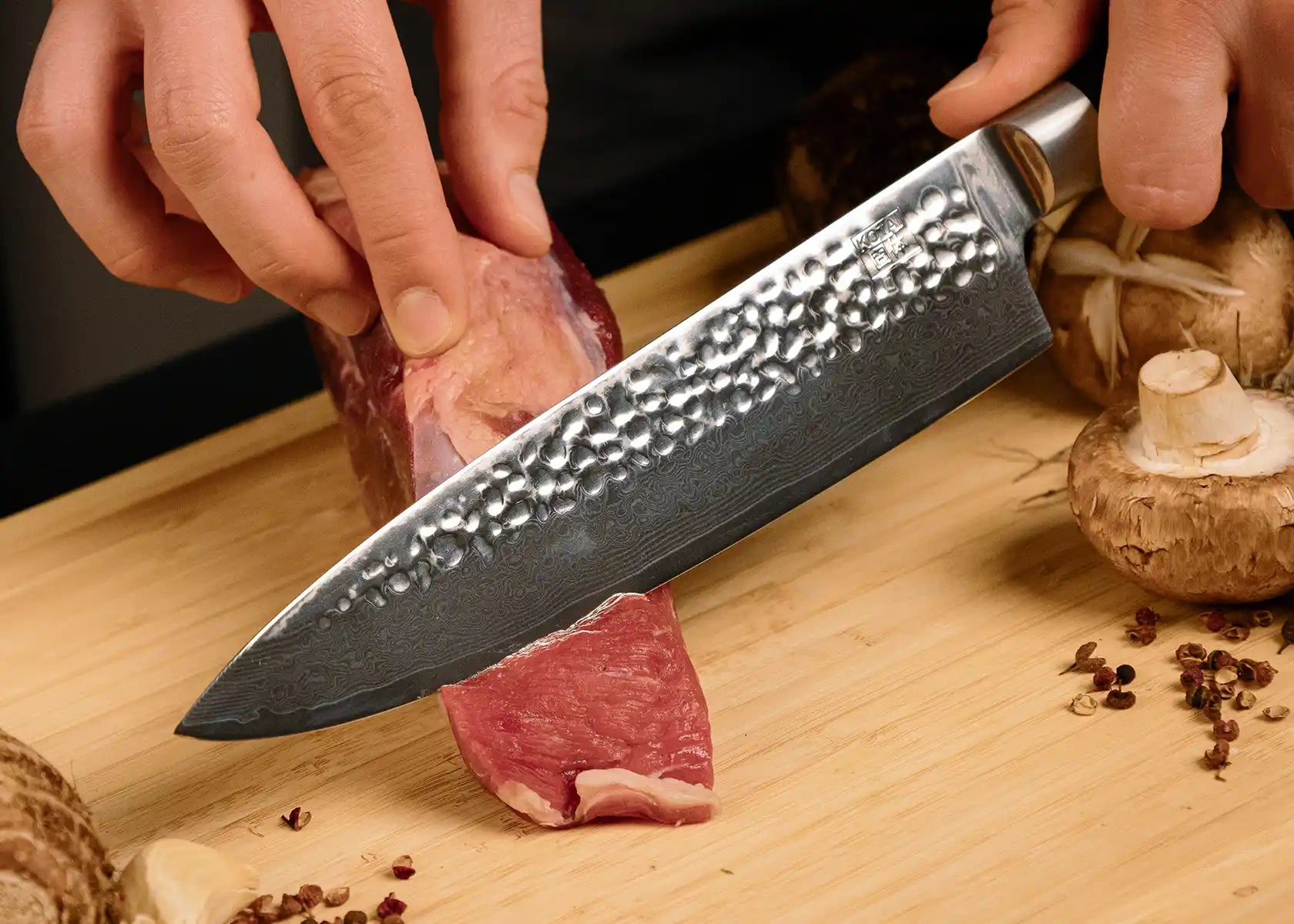For kitchen professionals and culinary enthusiasts alike, a Damascus paring knife is the embodiment of precision, artistry, and unmatched craftsmanship. Its unique patterns and exceptional sharpness make it a standout in any culinary setting. Whether you're peeling vegetables, deveining shrimp, or performing intricate garnishing tasks, the Damascus paring knife becomes an indispensable tool in your culinary arsenal.

The Art of Damascus Steel
Damascus steel has a storied history, renowned for its distinctive wavy patterns and strength. Originating centuries ago, this steel was celebrated for its ability to maintain a sharp edge and resist shattering. Today, chefs and kitchen professionals value Damascus steel not only for its performance but also for the aesthetic allure it brings to the kitchen.
It's intriguing to note how Damascus steel is crafted. Multiple layers of steel are skillfully combined and folded into a single piece, a process that creates its characteristic patterns. These intricate designs are more than just visual; they symbolize the intricate journey of culinary perfection. Learn more about the history of Damascus steel.
Why Choose a Damascus Paring Knife?
Choosing a Damascus paring knife offers a range of advantages. First and foremost, its blade is renowned for retaining sharpness longer than traditional knives. For a professional kitchen, where time efficiency and precision are crucial, this translates to less frequent sharpening and consistently precise cuts.
Additionally, the aesthetic value adds a touch of elegance to any knife collection. Each Damascus paring knife is unique due to its hand-crafted nature, with no two knives featuring the exact same pattern.
Features that Set the Damascus Paring Knife Apart
Beyond the captivating design, the ergonomic handle is designed for comfort during extended use. Kitchen professionals know the fatigue that can occur from repetitive slicing and peeling, but with a Damascus paring knife, comfort and control are prioritized.
Furthermore, its lightweight nature ensures agility, allowing chefs to maneuver swiftly without compromising precision. For detailed tasks, such as creating decorative garnishes or removing seeds, this agility is invaluable.
Maintenance and Care
Maintaining a Damascus paring knife involves regular honing and periodic sharpening. This upkeep ensures the longevity of its edge and the retention of its visual appeal. Visit this guide on professional Damascus knives for detailed care instructions.
To prevent rust, it's essential to clean the knife immediately after use, ensuring it is dry before storage. This care routine maintains not only the functionality but also enhances the natural beauty of the patterns.
Integrating the Knife in Your Kitchen
Transforming your kitchen with a Damascus paring knife is more than a functional upgrade; it's an enhancement in style and efficiency. When integrated with other Damascus kitchen tools, it complements the culinary harmony that every kitchen professional desires.
Perhaps you've considered the beautiful craftsmanship of handmade Damascus knives and are ready to elevate your culinary creations. Whether it's a knife set or a standalone piece, the Damascus paring knife serves both aesthetic and practical purposes.
Conclusion
The Damascus paring knife is not just a kitchen tool, it is a testament to the blend of ancient traditions and modern innovations tailored for kitchen professionals. With its rich history and exceptional utility, it serves as a beacon of excellence for those who craft art through cuisine.

FAQs
What makes Damascus steel different from regular steel?
Damascus steel is known for its wavy patterns and enhanced durability, resulting from a unique layering and welding process.
How often should I sharpen my Damascus paring knife?
Regular honing helps maintain sharpness, but professional sharpening is recommended every 6 months to ensure peak performance.
Can the patterns on a Damascus knife fade?
With proper care and maintenance, the distinctive patterns on a Damascus knife can be preserved for decades.
This article contains affiliate links. We may earn a commission at no extra cost to you.


























